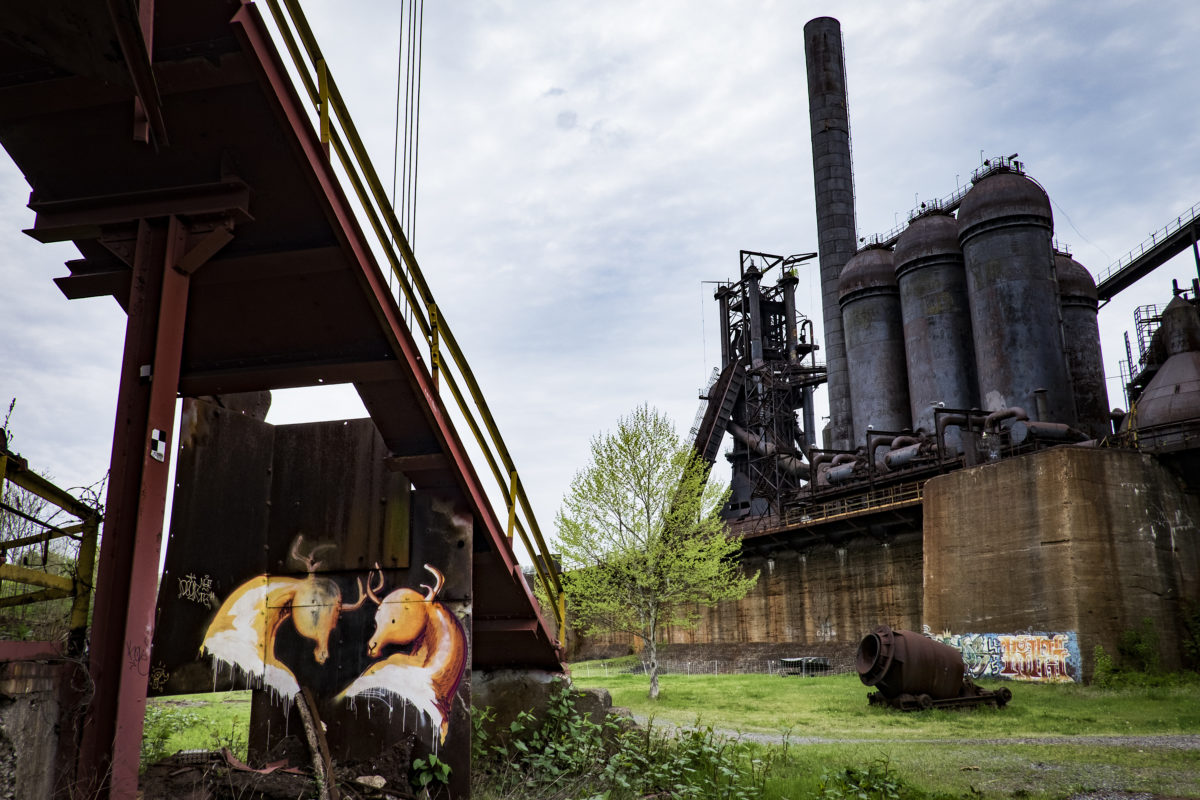
Searching for Dream Street - Rankin
The Carrie Furnaces were built in 1881 as part of U.S. Steel's Homestead Works, a sprawling 400-acre complex that spanned both sides of the Monogahela river. They produced up to 1,250 tons of steel a day until 1978 when they were closed. While the majority of the site was razed for a shopping center, the 100-foot high furnaces still stand. They are an extremely rare example of pre-WWII ironmaking technology. The furnaces were designated as a national historic landmark in 2006 and preservation efforts are underway.
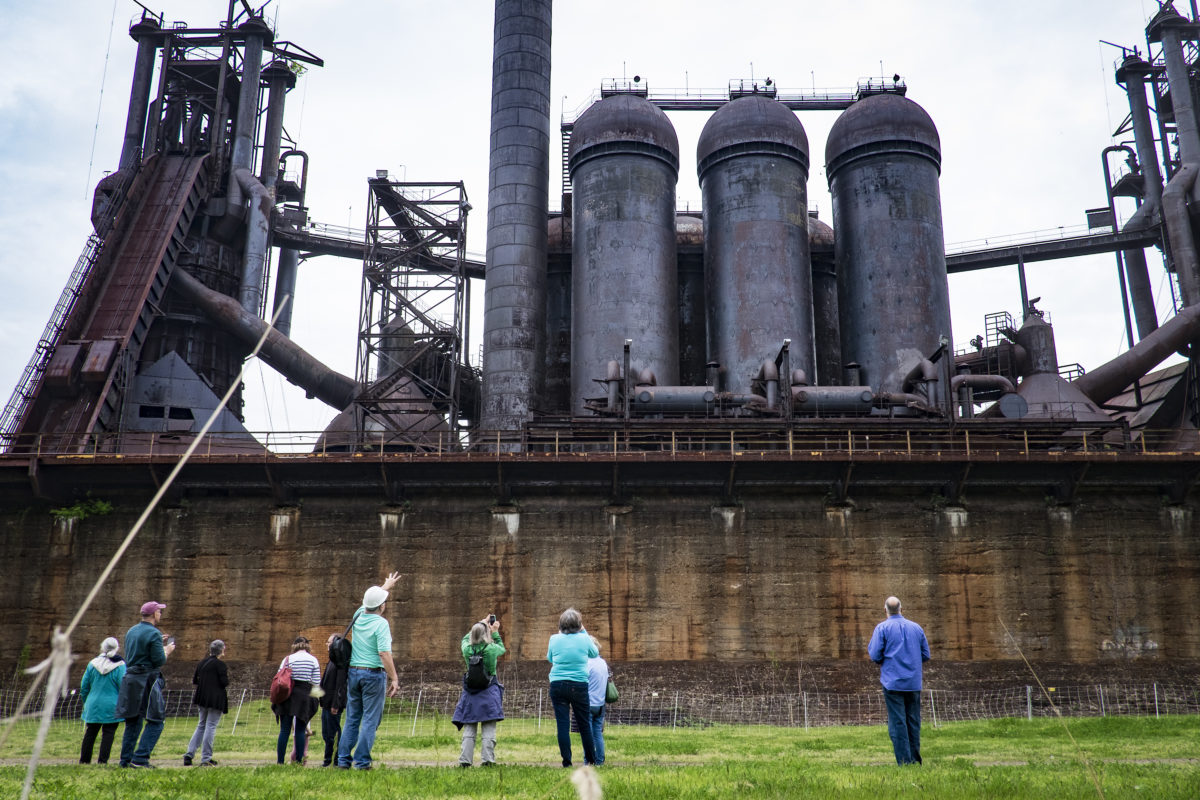
Searching for Dream Street - Rankin
A retired steel worker gives a tour at his former work site at the Carrie Furnaces in Rankin
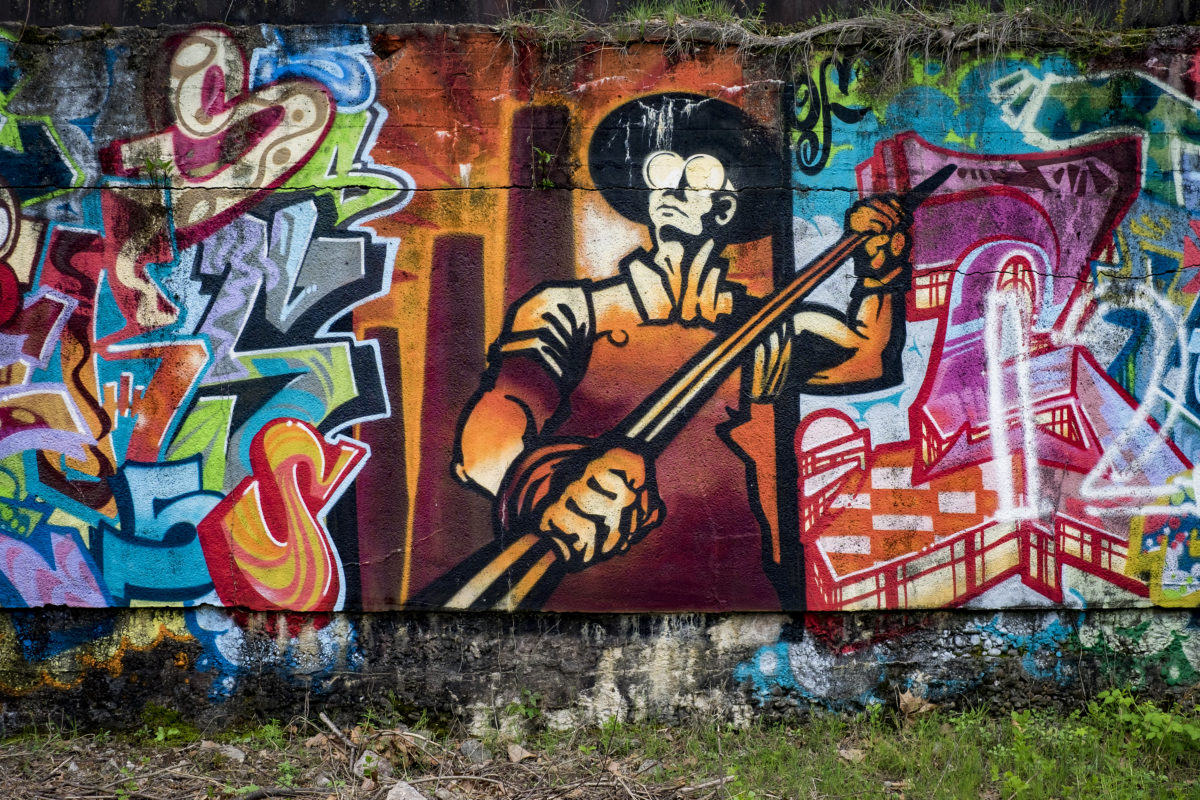
201604300448
Graffiti art that pays homage to the photography of Eugene Smith, adorns one of the structures at the Carrie Furnaces in Rankin, Pa.
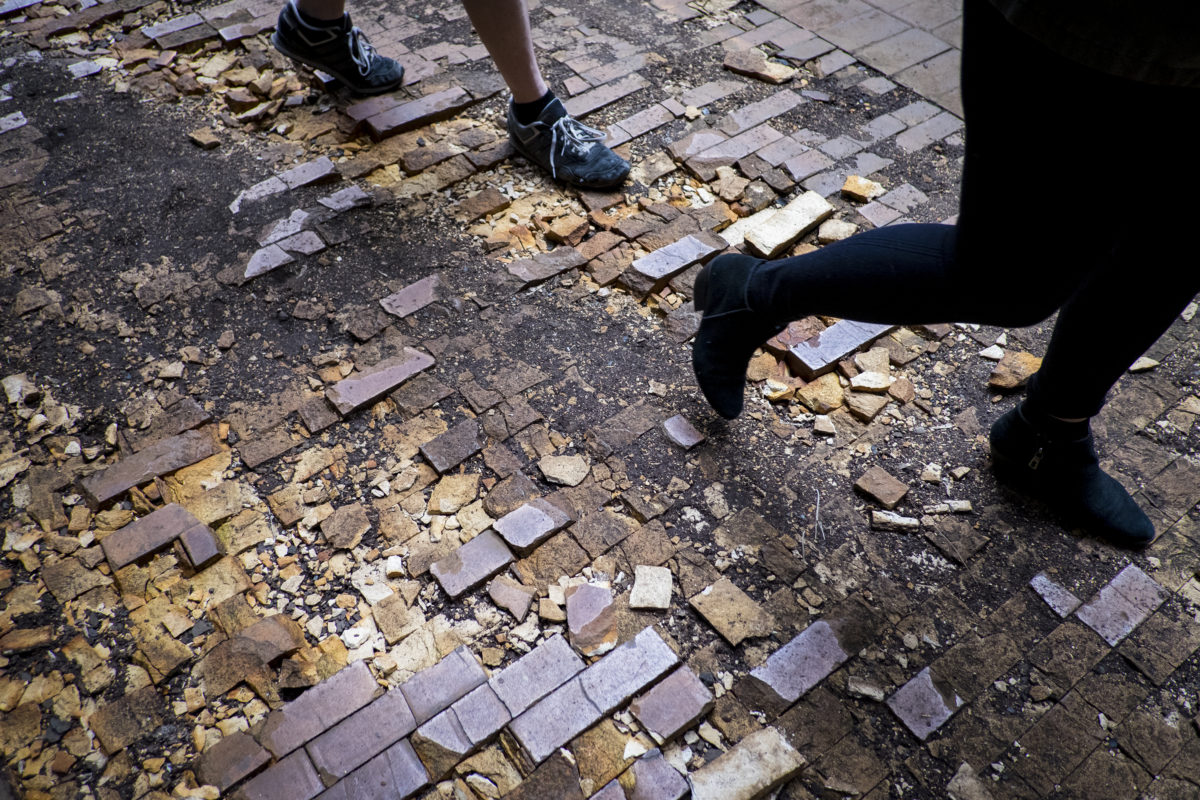
201604300246
A tour makes its way across the decaying tile walkways of the Carrie Furnaces in Rankin, Pa.
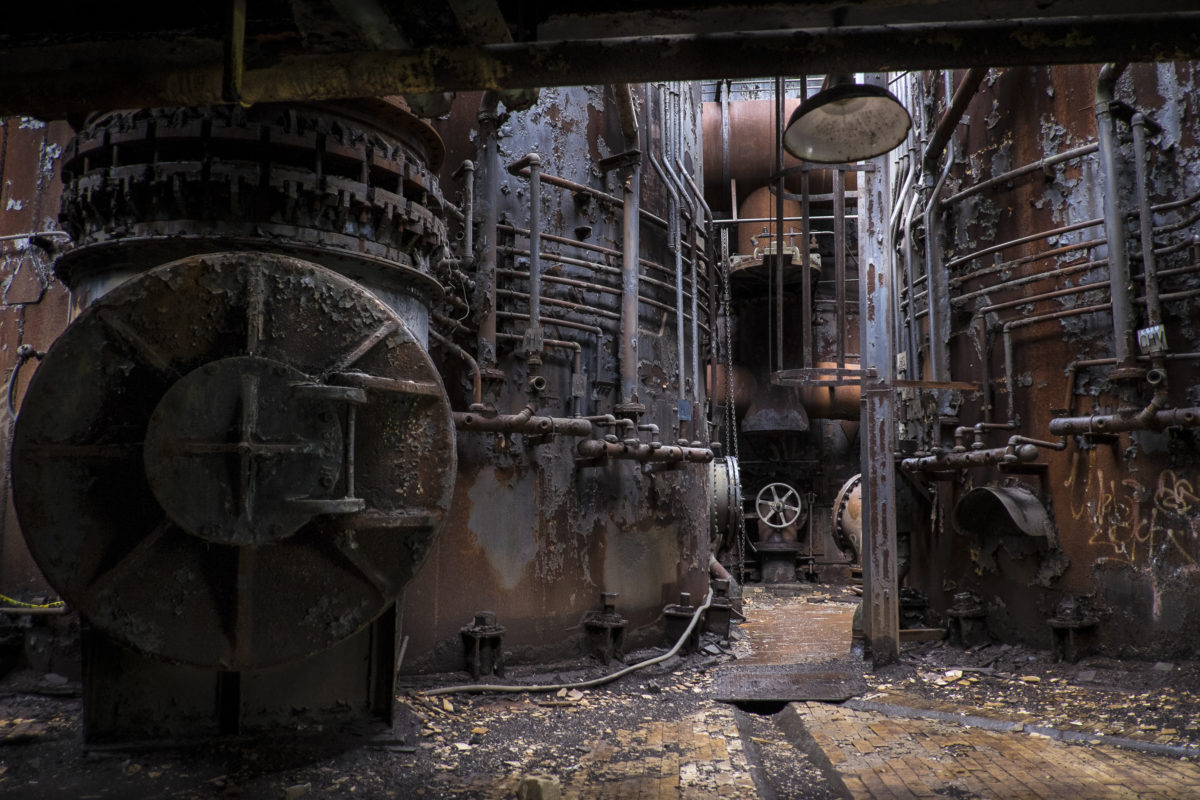
Searching for Dream Street - Rankin
U.S. Steel produced iron from 1907 until 1978 at the Carrie Furnaces. The peak period of production was in the 1950s and 1960s, when the seven blast furnaces were each producing 1,250 tons of iron ore every day.
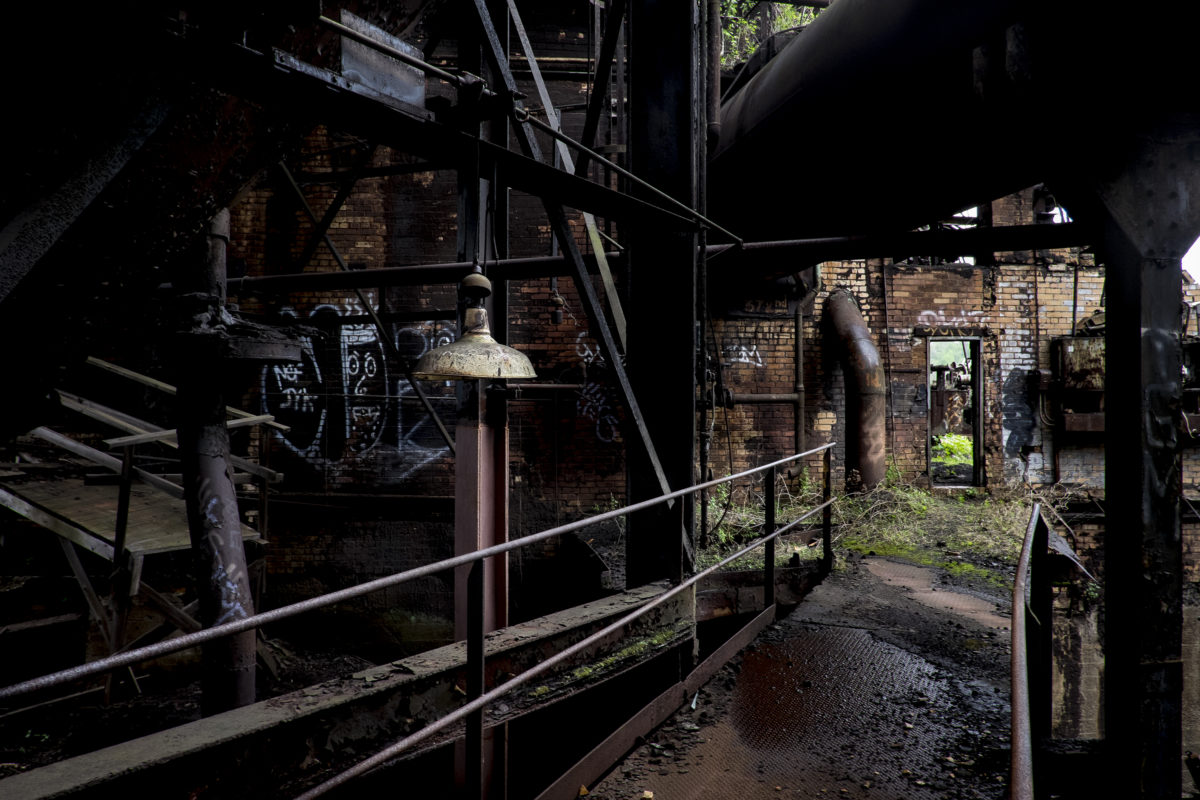
Searching for Dream Street - Rankin
The Carrie Furnaces were built in 1881 as part of U.S. Steel's Homestead Works, a sprawling 400-acre complex that spanned both sides of the Monogahela river. They produced up to 1,250 tons of steel a day until 1978 when they were closed. While the majority of the site was razed for a shopping center, the 100-foot high furnaces still stand. They are an extremely rare example of pre-WWII ironmaking technology. The furnaces were designated as a national historic landmark in 2006 and preservation efforts are underway.
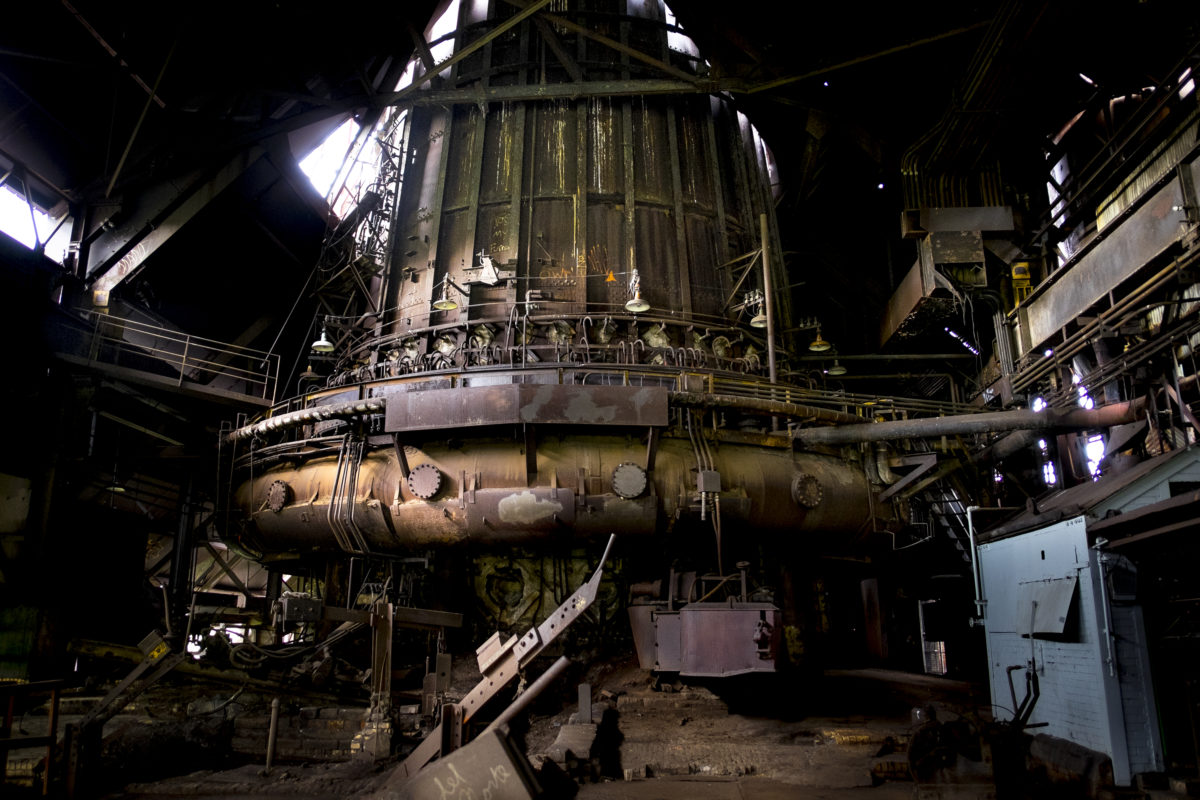
Searching for Dream Street - Rankin
The number 6 blast furnace at the Carrie Furnaces.
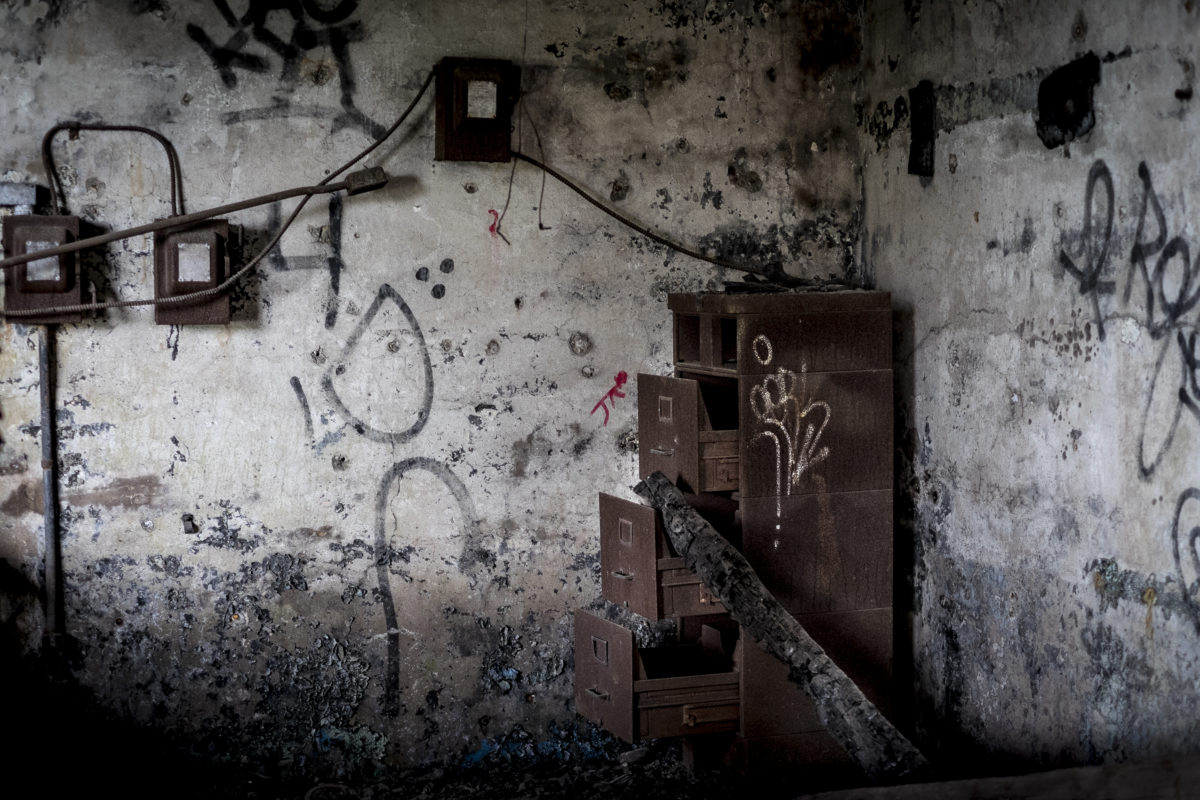
Searching for Dream Street - Rankin
An office near the main employee entrance to the Carrie Furnaces.
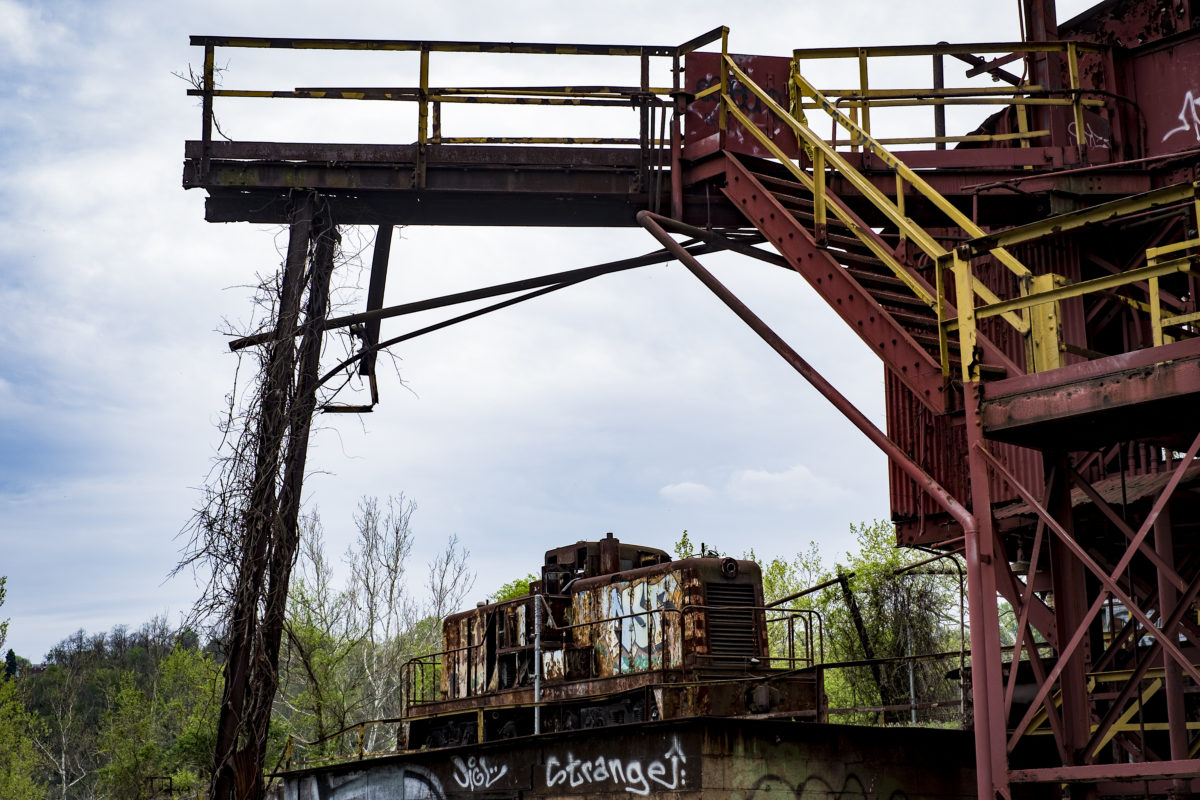
Searching for Dream Street - Rankin
The Carrie Furnaces were built in 1881 as part of U.S. Steel's Homestead Works, a sprawling 400-acre complex that spanned both sides of the Monogahela river. They produced up to 1,250 tons of steel a day until 1978 when they were closed. While the majority of the site was razed for a shopping center, the 100-foot high furnaces still stand. They are an extremely rare example of pre-WWII ironmaking technology. The furnaces were designated as a national historic landmark in 2006 and preservation efforts are underway.
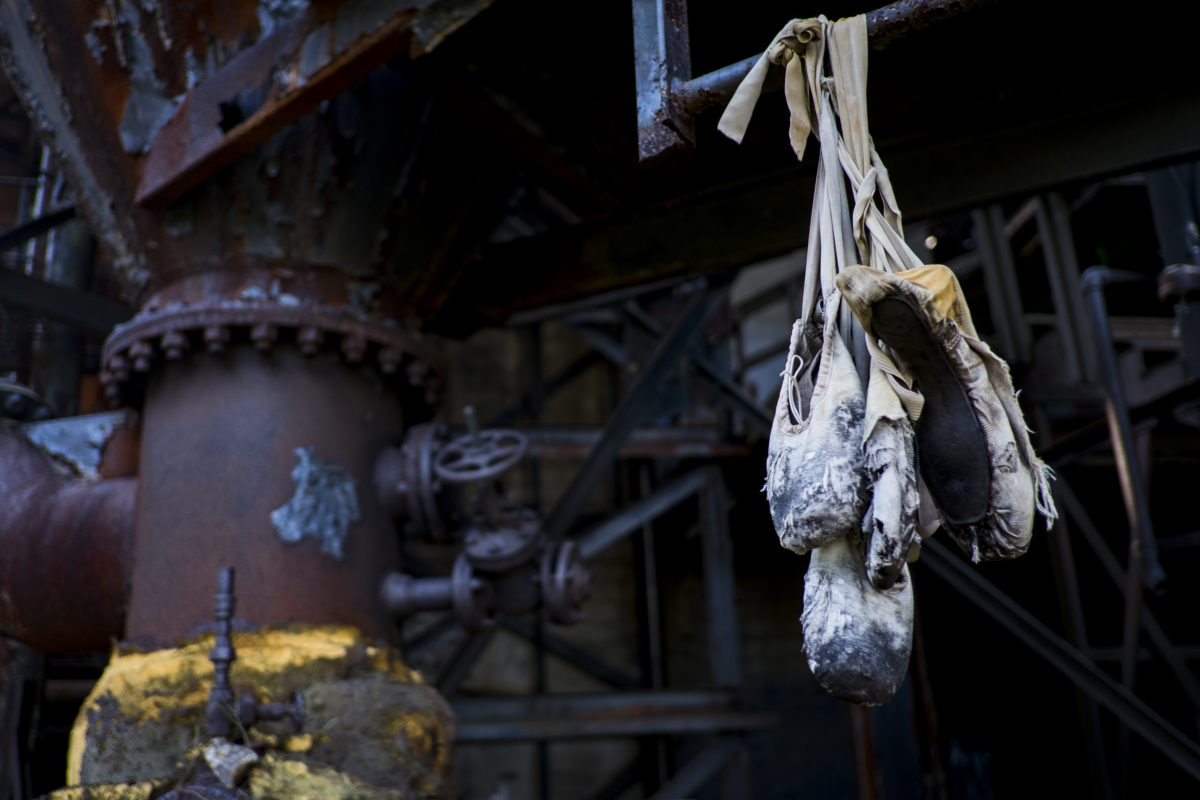
Carrie Furnaces Wedding
Two pairs of ballet slippers adorn part of the Carrie Furnaces. It is assumed the shoes were left behind by a dancer who had done a video shoot on site.
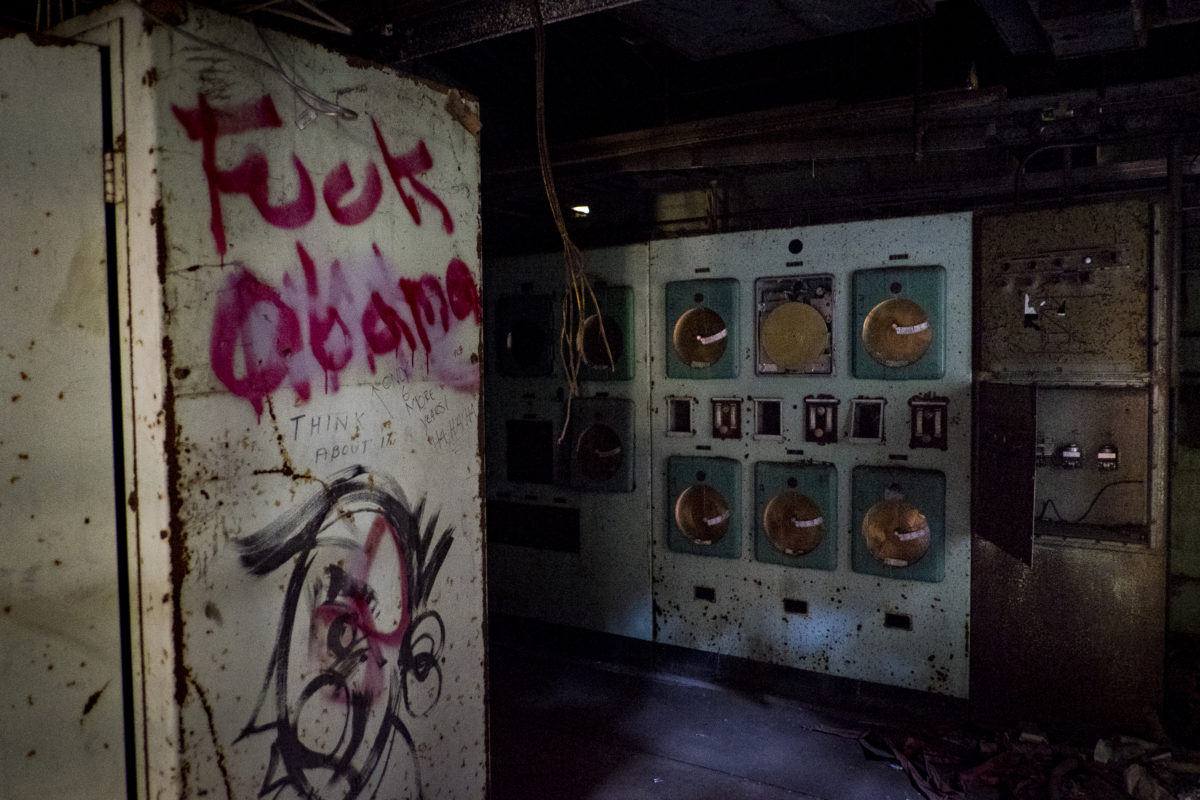
Searching for Dream Street - Rankin
Grafitti adorns one of the control rooms at the Carrie Furnaces.
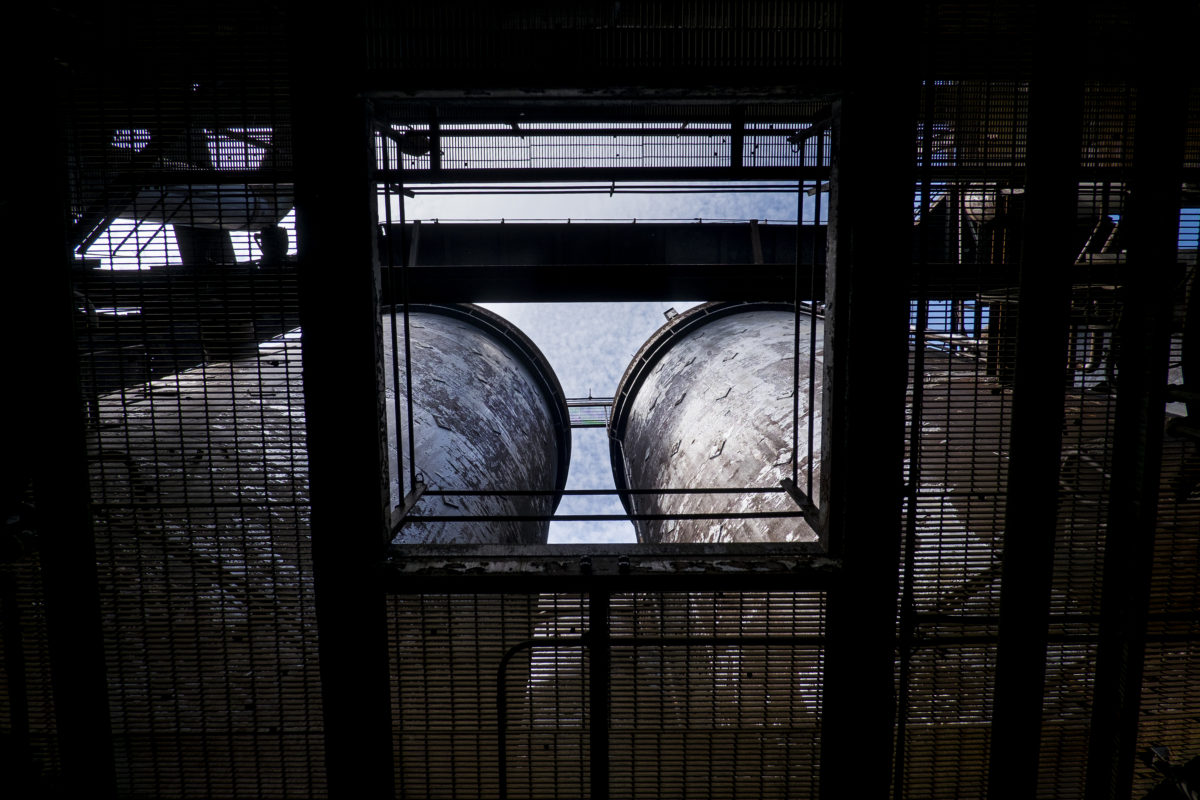
Searching for Dream Street - Rankin
The Carrie Furnaces were built in 1881 as part of U.S. Steel's Homestead Works, a sprawling 400-acre complex that spanned both sides of the Monogahela river. They produced up to 1,250 tons of steel a day until 1978 when they were closed. While the majority of the site was razed for a shopping center, the 100-foot high furnaces still stand. They are an extremely rare example of pre-WWII ironmaking technology. The furnaces were designated as a national historic landmark in 2006 and preservation efforts are underway.
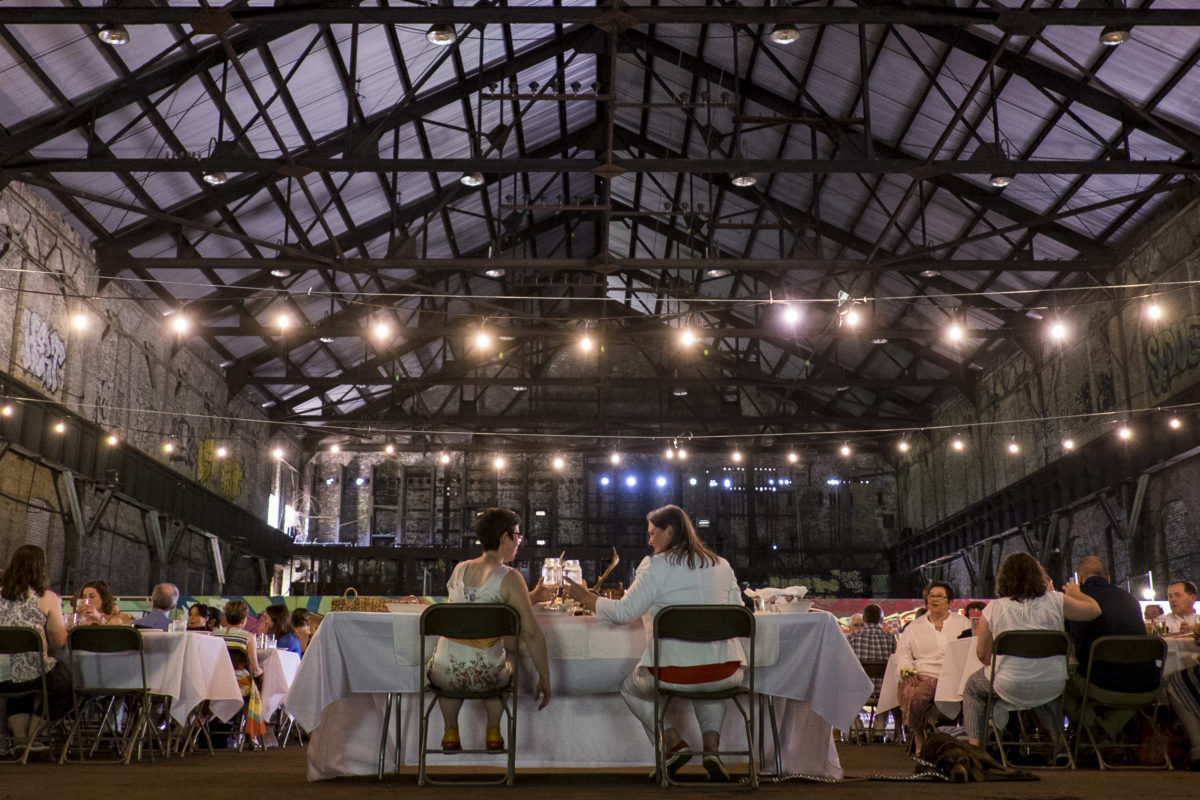
Carrie Furnaces Wedding
Miranda Crotsley and Hollen Barmer are just one of many couples who have tied the knot at the Carrie Furnaces. "We found Carrie to be breathtakingly, heartbreakingly, hauntingly beautiful ruins in what used to be a cradle of industry and innovation. We also thought of the workers and of our own grandparents and parents who worked tough jobs with long hours to give us more than they had growing up. (Miranda's dad worked in a fiberglass factory in Central Pennsylvania, and mine worked at Tennessee Valley Authority's Allen Steam Plant in Memphis.) ... The main themes for us are respect for the work that took place at Carrie, a desire to preserve the site itself, Carrie's strange beauty, and the resilience of people and nature in repurposing and reclaiming the site, " said the couple.
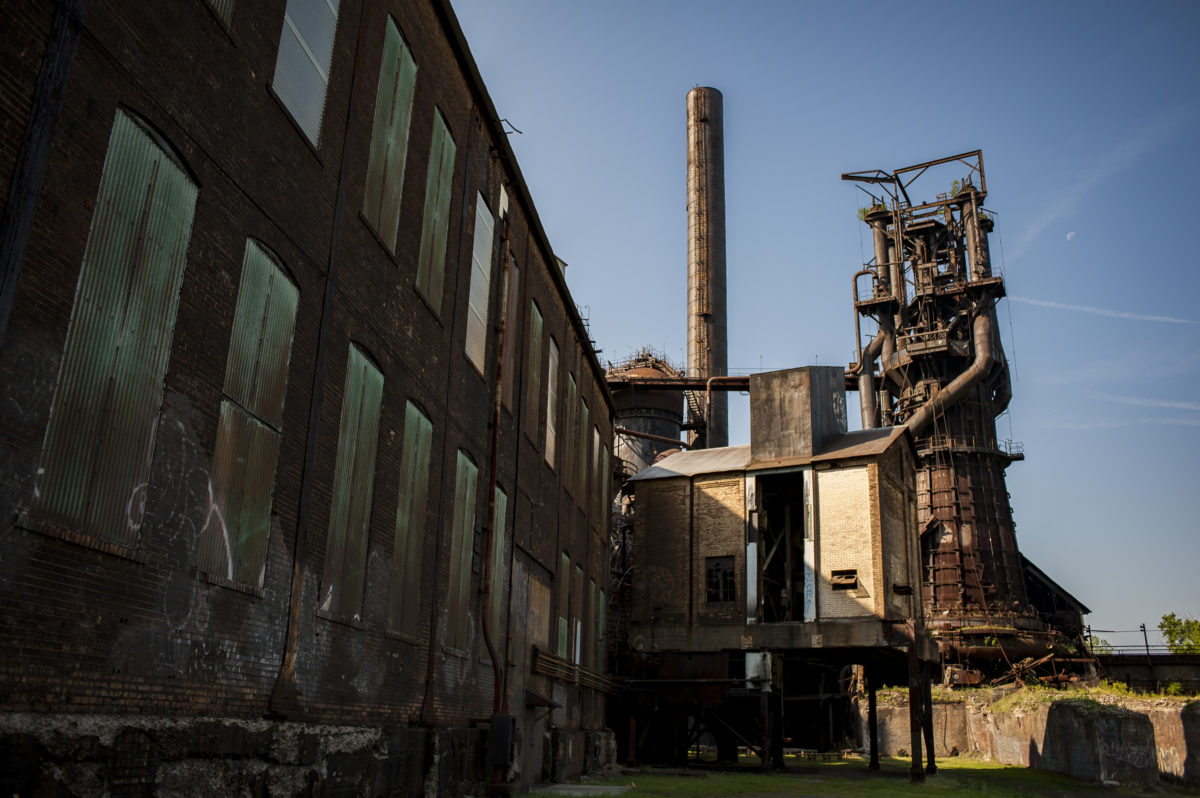
Searching for Dream Street - Rankin
The number 7 blast furnace at the Carrie Furnace complex.
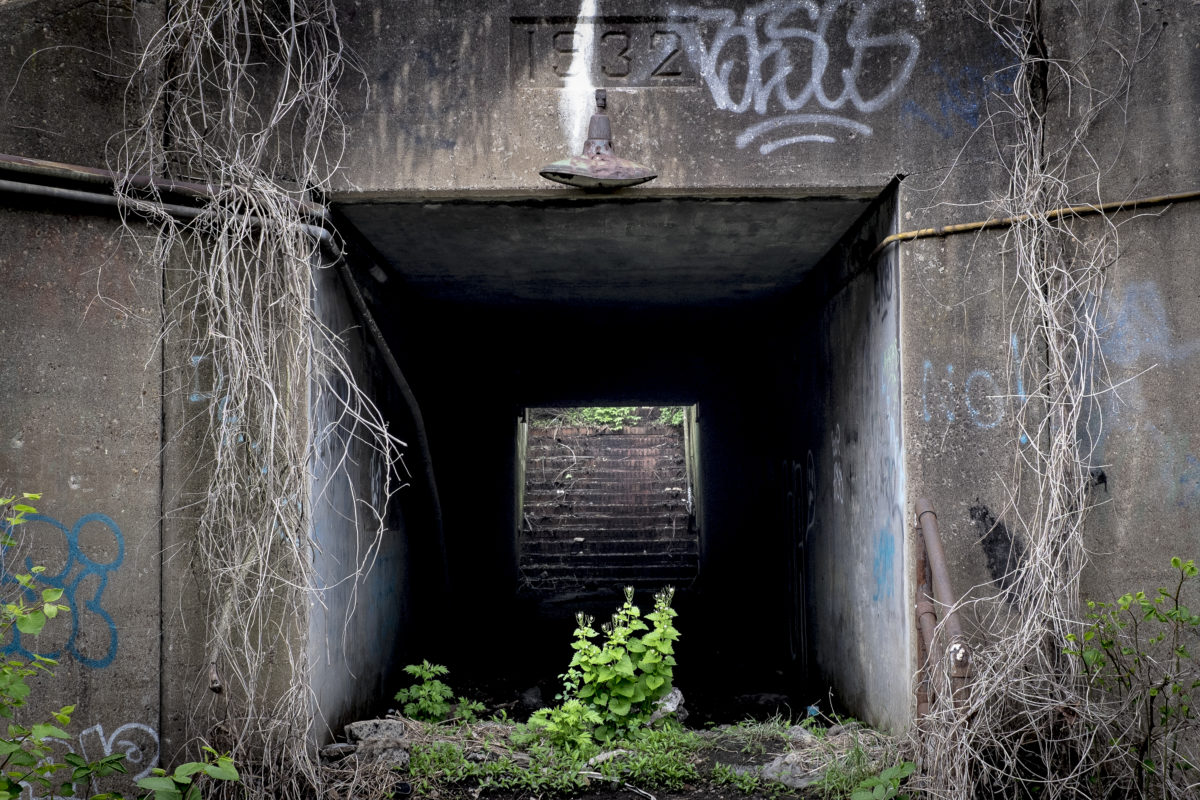
201405140436
The steelworker entrance to the Carrie Furnace site.
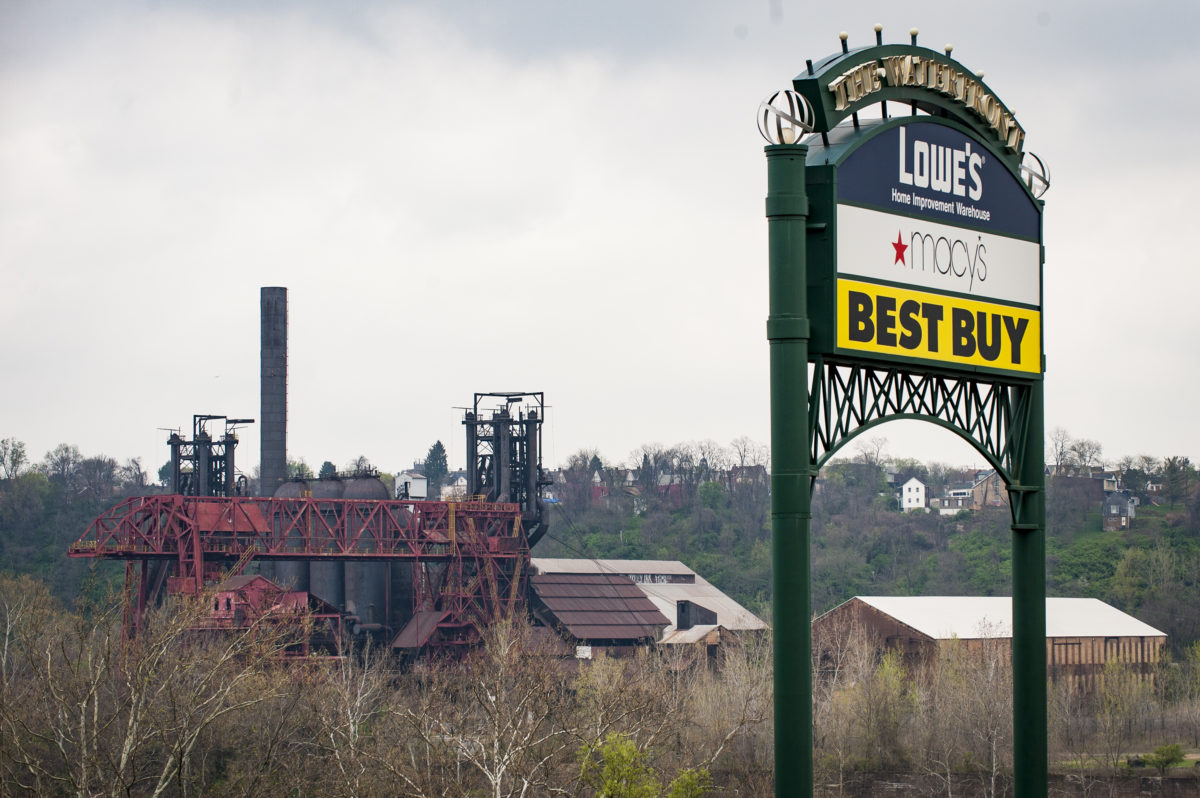
201604220018
The Carrie Furnaces stand in the distance as a monument to the past across the river from the Homestead Waterfront. The Waterfront is a open air shopping mall spanning the three boroughs of Homestead, West Homestead, and Munhall near Pittsburgh. The shopping mall sits on land once occupied by U.S. Steel's Homestead Steel Works plant, which closed in 1986.
Rankin - Searching for Dream Street
Photography by Pete Marovich
Rankin is a borough about 8 miles south of Pittsburgh on the Monongahela River. Like many of the former steel towns in the region, it is still struggling after the decline of the steel industry.
Like most of the other towns along the Monongahela, Rankin specialized in the manufacturing of steel and wire products. Its population almost doubled to 7,470 in 1940 when the steel industry was at its peak. But once the mills shut down the population dropped to 2,122 according to the 2010 census.
Rankin is home to the Carrie Furnaces. Built in 1881 as part of U.S. Steel’s Homestead Works, it was a sprawling 400-acre complex that spanned both sides of the river.
U.S. Steel shuttered the furnaces in 1978 and the Homestead Works followed in 1986.
LICENSE THIS STORY
Images from this story may be licensed for editorial or educational use by publications and educators. Click on the link below to learn more.
VIEW ALL IMAGES FROM THIS STORY
There are usually more images available from this story than are presented here. Click on the link below to view the entire collection.
